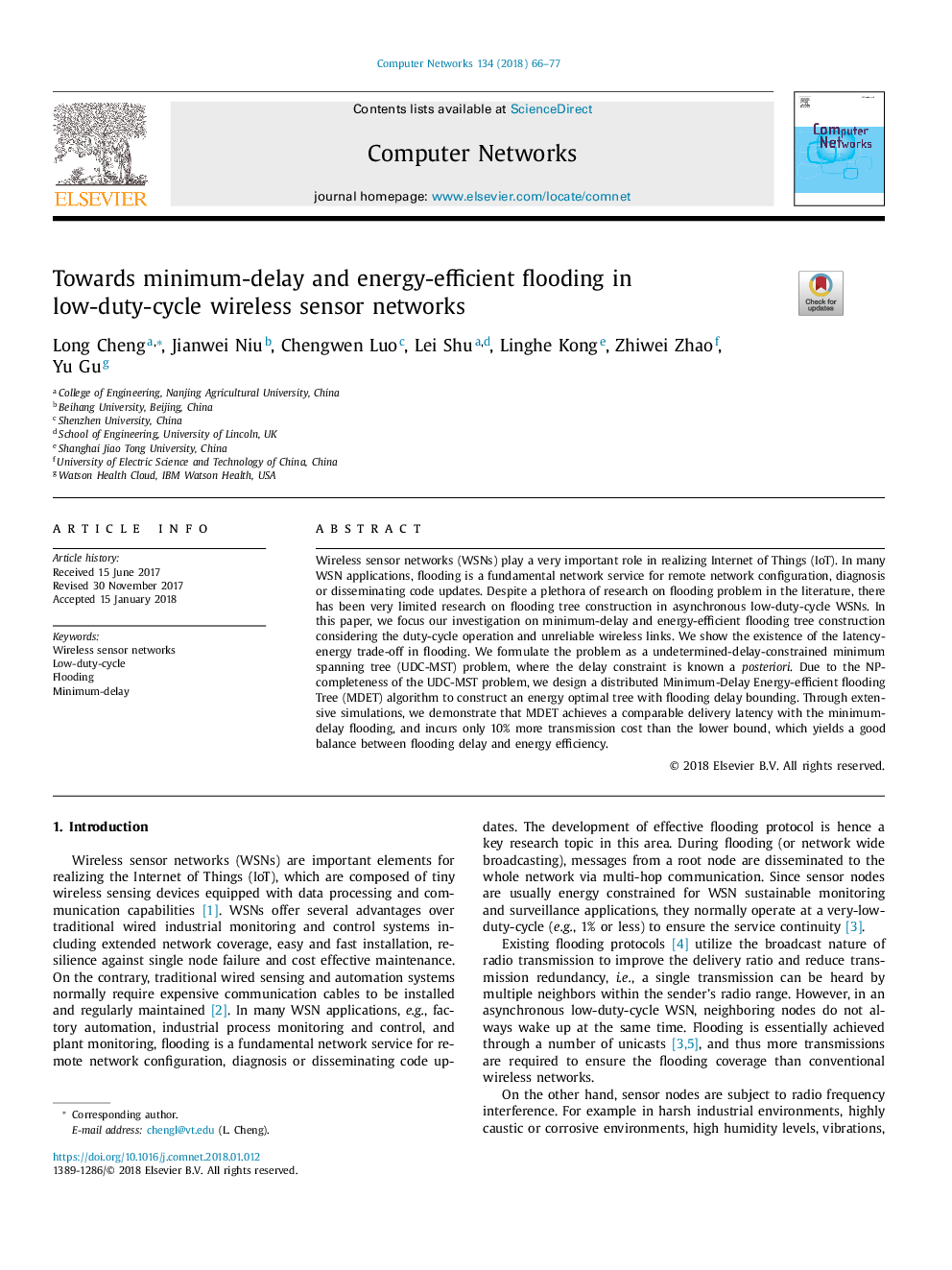| Article ID | Journal | Published Year | Pages | File Type |
|---|---|---|---|---|
| 6882761 | Computer Networks | 2018 | 12 Pages |
Abstract
Wireless sensor networks (WSNs) play a very important role in realizing Internet of Things (IoT). In many WSN applications, flooding is a fundamental network service for remote network configuration, diagnosis or disseminating code updates. Despite a plethora of research on flooding problem in the literature, there has been very limited research on flooding tree construction in asynchronous low-duty-cycle WSNs. In this paper, we focus our investigation on minimum-delay and energy-efficient flooding tree construction considering the duty-cycle operation and unreliable wireless links. We show the existence of the latency-energy trade-off in flooding. We formulate the problem as a undetermined-delay-constrained minimum spanning tree (UDC-MST) problem, where the delay constraint is known a posteriori. Due to the NP-completeness of the UDC-MST problem, we design a distributed Minimum-Delay Energy-efficient flooding Tree (MDET) algorithm to construct an energy optimal tree with flooding delay bounding. Through extensive simulations, we demonstrate that MDET achieves a comparable delivery latency with the minimum-delay flooding, and incurs only 10% more transmission cost than the lower bound, which yields a good balance between flooding delay and energy efficiency.
Keywords
Related Topics
Physical Sciences and Engineering
Computer Science
Computer Networks and Communications
Authors
Long Cheng, Jianwei Niu, Chengwen Luo, Lei Shu, Linghe Kong, Zhiwei Zhao, Yu Gu,
